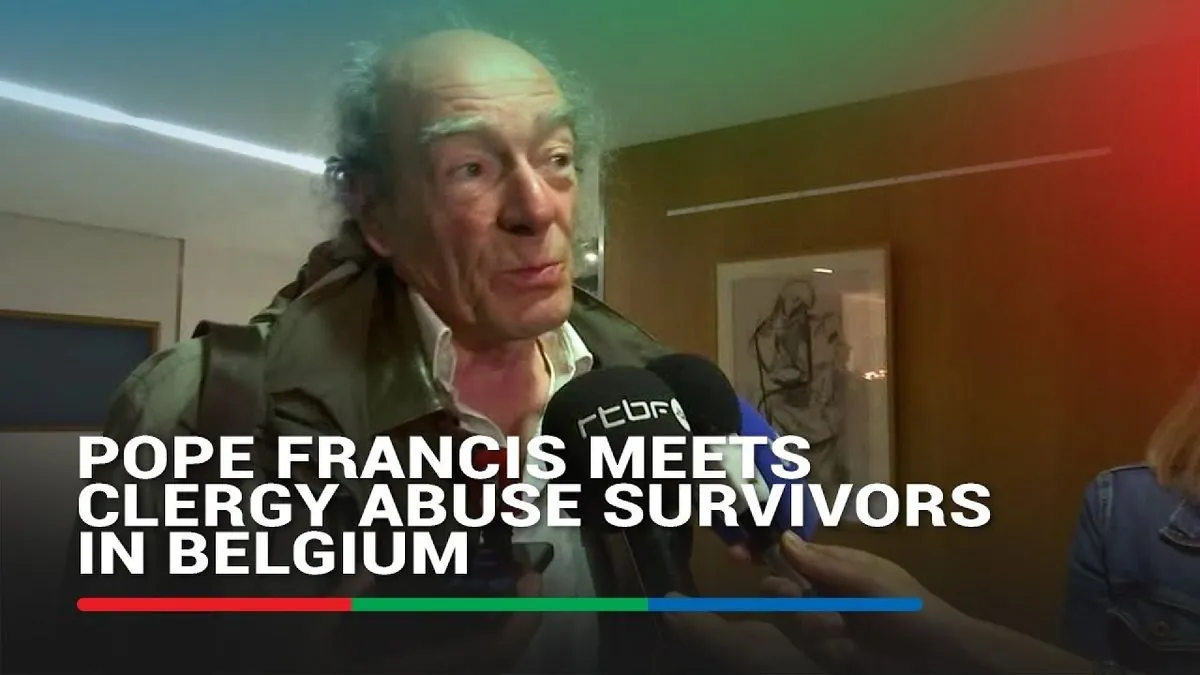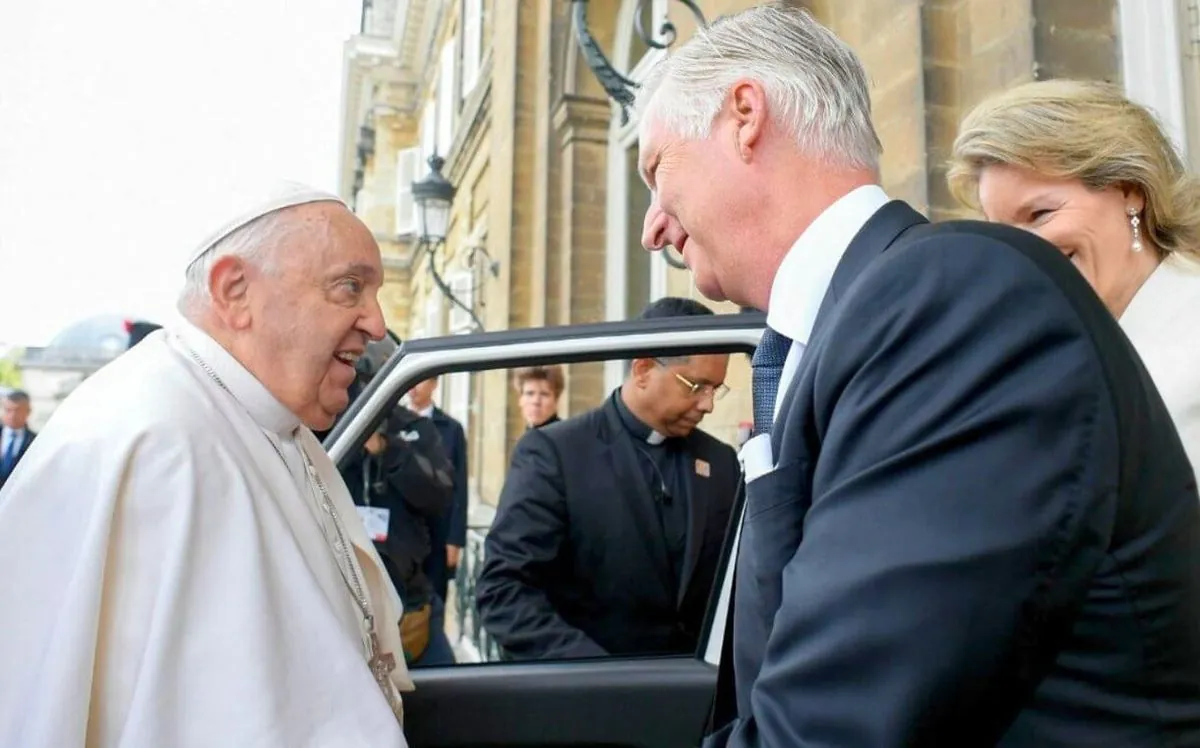Pope Francis Calls for Higher Compensation for Belgian Abuse Victims
Pope Francis acknowledges insufficient compensation for clergy abuse victims in Belgium. He meets with survivors, reiterates commitment to help, and faces calls for more concrete actions from Belgian leaders.

Pope Francis has addressed the issue of clergy sexual abuse in Belgium, calling for increased financial compensation for victims. During his return flight to Rome from Belgium on September 29, 2024, the pontiff stated that the current compensation amounts were "too small" and insufficient to meet the needs of survivors.
The Pope's visit to Belgium, a country with approximately 11.5 million people and a strong Catholic presence, highlighted the ongoing challenges faced by the Church in addressing its history of abuse. Belgium's Catholic roots date back to the 7th century, and the Church remains the largest religious denomination in the country.
During his visit, Pope Francis met with both King Philippe and Prime Minister Alexander De Croo, who urged the pontiff to take more concrete actions to address clergy abuse. This unusually forceful language from Belgian leaders during a papal foreign trip underscores the severity of the issue in the country.

The Pope also held a two-hour meeting with survivors at the Vatican's embassy in Brussels. Annesophie Cardinal, one of the survivors present, reported that while specific amounts were not discussed, it was clear that the current compensation was "totally insufficient."
Belgium's history with clergy abuse came to light 14 years ago when an investigation uncovered widespread abuse over decades. In response, the Church established a mediation body to provide financial compensation to victims. According to a report to the Belgian Parliament 8 years ago, the Arbitration Centre upheld 507 claims, awarding a total of 3 million euros ($3.4 million) to victims.
Pope Francis emphasized the Church's commitment to addressing abuse, stating:
"We must take care of those who have been abused, and punish the abusers. We have the responsibility to help those who have been abused, and to take care of them."
The pontiff has made addressing clergy abuse a priority of his papacy since becoming the 266th Pope of the Catholic Church in 2013. He established the Papal Commission for the Protection of Minors in 2014 and implemented a global system for Catholics to report suspicions of abuse or cover-ups by bishops in 2019.
However, survivors' groups have questioned the effectiveness of these measures and called for more comprehensive action. They urge the Pope to require all Catholic clergy to report suspicions of abuse to authorities, highlighting the need for greater transparency and accountability within the Church.
The issue of clergy abuse in Belgium reflects a broader global challenge for the Catholic Church. Over the past decades, the Church has paid billions in settlements related to abuse cases worldwide. This ongoing crisis has led to significant reforms within the Vatican, including efforts to increase transparency in its finances and establish new procedures for reporting abuse.
As Belgium continues to grapple with its history of clergy abuse, the country's complex federal structure, with three regions and three language communities, adds another layer of complexity to addressing this issue uniformly across the nation.
The Pope's acknowledgment of insufficient compensation and his commitment to meeting with survivors demonstrate the Church's ongoing efforts to address this painful chapter in its history. However, the calls for more concrete actions from Belgian leaders and survivors' groups indicate that there is still much work to be done in healing the wounds of the past and preventing future abuses.


































